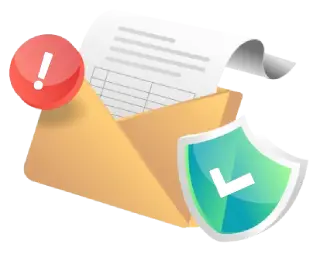How to Simulate Real Attacks to Test Phishing Protection

In an era where cyber threats are advancing faster than many businesses can respond, one critical question remains: how do we effectively test email security solutions like Vircom ModusCloud in ways that reflect real-world risks not just theoretical ones?
At DataguardNXT, a trusted Vircom ModusCloud distributor across UAE, Oman, KSA, Kuwait, Qatar, Bahrain, and Africa, we emphasize more than just the deployment of email security tools. We believe in measurable protection testing that reveals whether your email security solution actually stands up to today’s most sophisticated threats.
Email has long been the attack vector of choice for cybercriminals. While basic anti-phishing email security might have sufficed a decade ago, modern threats demand modern defenses and equally modern testing approaches.
Traditional testing methods, such as sending a batch of obvious spam or test phishing emails, fall far short of simulating the complexity and subtlety of current attack campaigns. Today, attackers use advanced phishing, zero-day exploits, fileless attacks, and business email compromise (BEC) tactics to evade traditional filters.
That’s why Vircom ModusCloud goes far beyond legacy security models. Its AI-driven cloud email security engine detects threats dynamically analyzing behavior, context, and intent not just content.
Many organizations fall into the trap of using superficial benchmarks to evaluate their email security. Here’s why that approach fails:
To truly test an email security solution like ModusCloud, the evaluation must go deeper.
Here are realistic threat scenarios every business should simulate when evaluating their email security for businesses:
Attackers gain control of trusted accounts and mimic the writing style of the user to bypass natural language processing (NLP) filters. ModusCloud's AI algorithms analyze behavioral patterns to detect and flag anomalies.
Legitimate links from services like Google, Microsoft, or Slack are modified to redirect to phishing sites. ModusCloud evaluates destination behavior, not just the domain.
Sophisticated emails use obfuscated JavaScript within HTML tags to bypass traditional scanners. ModusCloud's deep content inspection detects and neutralizes these attempts.
There are no attachments or links just persuasive, well-crafted text to deceive finance teams. This is where anti-phishing email security powered by behavioral analytics becomes essential.
A rising threat: QR codes containing malicious payloads. ModusCloud uses image scanning and link resolution to analyze embedded code risks.
Fake CAPTCHA pages hide phishing content from automated crawlers. Advanced content rendering by ModusCloud reveals hidden threats.
DataguardNXT recently ran a controlled email penetration test simulating over 1,000 phishing attack variants targeting SMBs and enterprises in the GCC region. The results?
54% of simulated threats bypassed conventional security setups.
However, with Vircom ModusCloud, that number dropped drastically to under 7%, thanks to its layered, AI-driven protection model. This included:
These results underscore the importance of not just implementing an email security solution, but continuously testing and tuning it to face evolving threats.
Unlike many point products, Vircom ModusCloud is a unified cloud email security platform built with modern attacks in mind:
You wouldn’t leave your physical office unlocked overnight so why let your email gateway go
untested?
Effective email security starts with the right solution, but it’s strengthened by
continuous, realistic testing. Vircom ModusCloud is ready for the evolving threat
landscape. The question is is your business?
Contact DataguardNXT for a free email security assessment or to schedule a guided
threat simulation using Vircom ModusCloud.